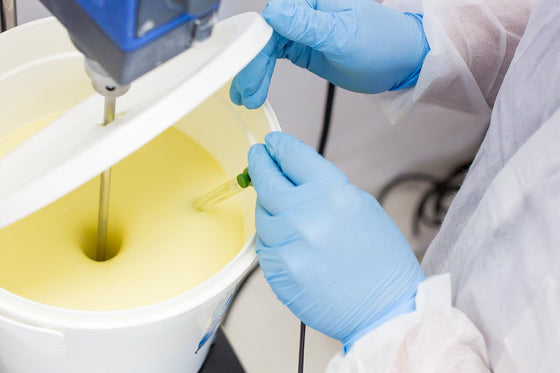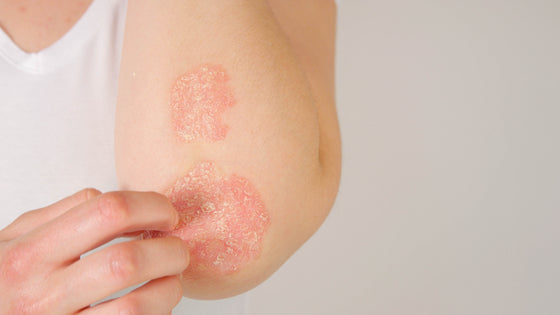
Skin cancers - most Australians have either had one or know someone who has. Skin cancer is the most common form of cancer, making up at least 40% of all cancers worldwide. Skin cancers are especially common among people with pale skin. When people think of skin cancers, most think of melanoma... but melanoma occurs much less frequently than other types of skin cancers. Basal-cell carcinoma (BCC) and squamous-cell carcinoma (SCC) account for most skin cancers (about 90%). While BCC and SCC are usually less life-threatening than melanoma, they may become dangerous if left untreated. All three types of skin cancer have become more common in the last 20-40 years, especially in areas with predominantly Caucasian populations like Australia. Australia has one of the highest skin cancer rates in the world.
 Most skin cancers (greater than 90%) are caused when ultraviolet (UV) radiation from sunlight causes DNA damage inside skin cells, resulting in abnormal cell growth. Therefore, the best method of avoiding skin damage is to avoid sun exposure during periods of peak UV radiation (and most particularly during summer daylight hours). The times of day when UV protection is recommended are published in Australia by the Bureau of Meteorology. Next, prevent UV radiation from reaching the skin: wear a hat, protective clothing and sunglasses. The last line of defence is through the use of broad-spectrum sunscreens (SPF greater than 30+). These work by absorbing UV light at the skin surface, slowing the rate at which damage occurs. Sunscreens are only effective if re-applied regularly. In the Australian summer, because of the heat and the necessity of outdoor work, many people find it difficult to completely protect themselves from the sun. Some body areas such as the hands, neck and face may be regularly exposed to low-level UV damage. Such cumulative sun exposure is a primary risk factor in the development of skin cancers. Many people have a history of sun damage — perhaps from before "sun-safe" public health messages were commonplace — but it is never too late to start protecting oneself.
Most skin cancers (greater than 90%) are caused when ultraviolet (UV) radiation from sunlight causes DNA damage inside skin cells, resulting in abnormal cell growth. Therefore, the best method of avoiding skin damage is to avoid sun exposure during periods of peak UV radiation (and most particularly during summer daylight hours). The times of day when UV protection is recommended are published in Australia by the Bureau of Meteorology. Next, prevent UV radiation from reaching the skin: wear a hat, protective clothing and sunglasses. The last line of defence is through the use of broad-spectrum sunscreens (SPF greater than 30+). These work by absorbing UV light at the skin surface, slowing the rate at which damage occurs. Sunscreens are only effective if re-applied regularly. In the Australian summer, because of the heat and the necessity of outdoor work, many people find it difficult to completely protect themselves from the sun. Some body areas such as the hands, neck and face may be regularly exposed to low-level UV damage. Such cumulative sun exposure is a primary risk factor in the development of skin cancers. Many people have a history of sun damage — perhaps from before "sun-safe" public health messages were commonplace — but it is never too late to start protecting oneself.In recent years, Australian researchers made headlines after showing that nicotinamide (a form of Vitamin B3) has protective effects against damage caused by UV radiation, and that these effects may reduce the development of new non-melanoma skin cancer and precancerous lesions (such as BCC and SCC). Excitingly, nicotinamide may also reduce the number of lesions in patients with pre-existing skin cancers. The new studies looked at daily oral doses of B3 about 25 times the recommended dietary intake, a level that would be difficult to attain by simply eating a better diet. Also, note that it was well-tolerated nicotinamide that was taken, not the other common forms of Vitamin B3 — niacin or nicotinic acid — which when taken at similar levels could cause unpleasant side effects such as flushing, headache, and/or low blood pressure. Before taking oral nicotinamide, consult with a dermatologist or general practitioner to see whether it is suitable for you. These discoveries promise to revolutionise thinking around skin cancer... and especially when applied directly to UV-exposed skin (that is, topically).
For those with sun-damaged skin, or those who have suffered skin cancers scares, topical nicotinamide is safe, just as effective as oral B3, and is now recommended by the Cancer Council of NSW. It has been proposed as an additive to sunscreens to boost their effectiveness in reducing UV damage to skin. Applying nicotinamide to specific areas of skin that may be of concern (for example, to sun damaged hands, neck or face) eliminates the necessity of exposing the entire body to an oral dose. At BCP, we have long known that topical Vitamin B3 also has many benefits for sufferers of acne, rosacea, hyperpigmentation and melasma. It may also have extra effects, including improved skin elasticity and reductions in hyperpigmented “age” spots, less red blotchiness and sallowness (yellowing) and improvements of fine lines and wrinkles. Topical nicotinamide is available in our Nicotinamide (B3) 4% in Hyaluronic Acid Serum, or as one of the many options available for our BCP Custom moisturisers and serums.
BCP products are unique, because they are formulated by pharmacists.
Comments will be approved before showing up.

Medicinal cannabis products are legal, high quality medicines that can be prescribed for people by their doctor. Medicinal cannabis is derived from cannabis plants and can be used to treat the symptoms of certain medical conditions, and the side effects of some treatments.
